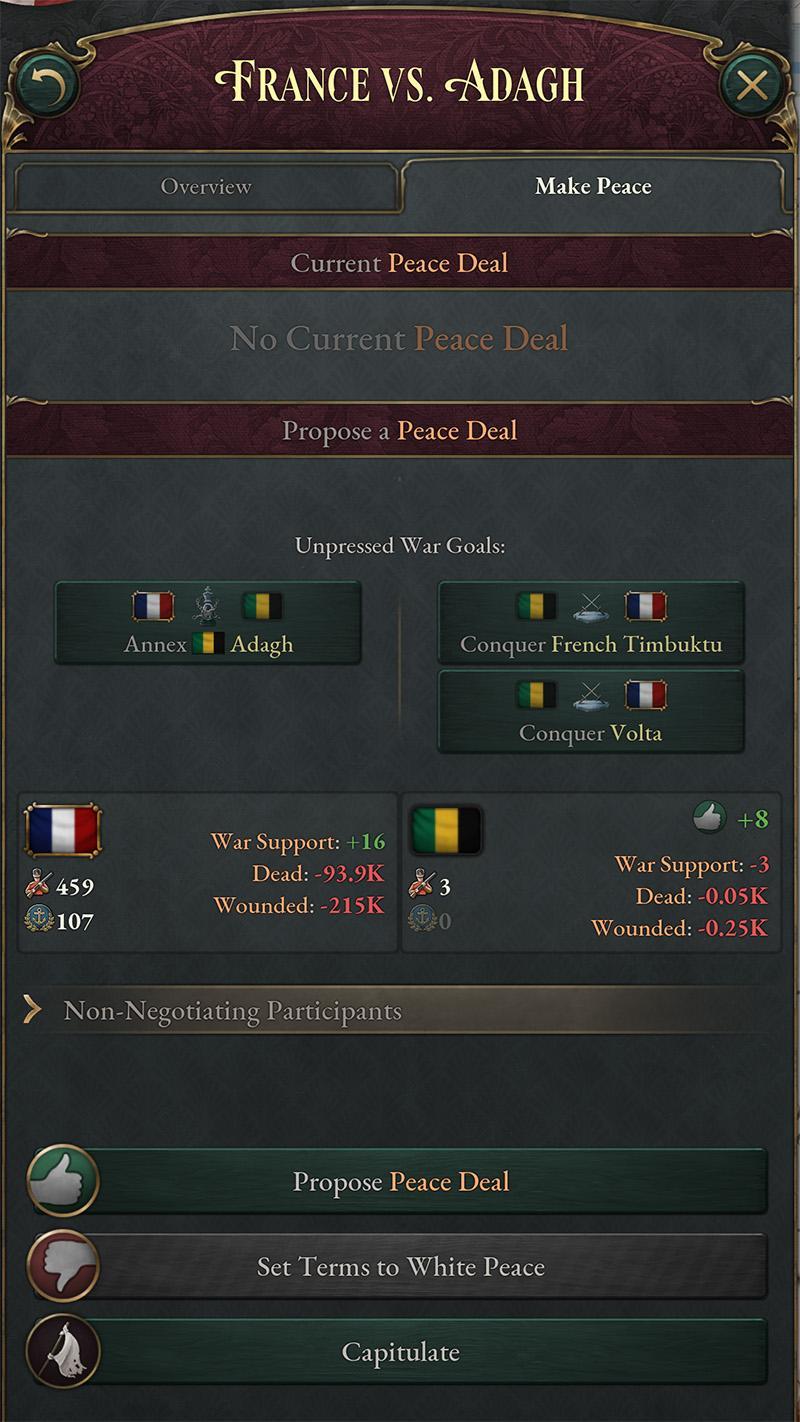
Ending Wars
There are a number of ways a nation involved in a war can end that involvement. They can capitulate voluntarily, negotiate a peace, or they or their enemy can have their war support reduced to -100, leading to involuntary capitulation.
War Support
Nations start a war with 100 war support, and it will generally be reduced each week by an ‘exhaustion’ factor that is based on a number of factors, including:
- A base decay rate of -0.25.
- -1 for every 10% of occupation.
- -2 if the enemy controls 100% of their war goals, pro-rata reduced down to 0 for 0% of war goals controlled.
- An amount based on the number of casualties taken – this includes both dead and wounded.
- -0.2 for every 10% of the population that is radical.
In this war, France is on the back foot, primarily because its opponent controls 50% of its war goals. Control of war goals is often critical to a successful war.

In some situations, it is not possible for a nation’s war support to drop below zero. This is generally the case if there are ‘conquer state’ or ‘annex’ war goals targeting a nation – in which case the states targeted for conquest and the nation’s capital must be occupied before their war support will drop below 0.
Capitulation
Involuntary Capitulation
Once a nation’s war support drops to -100 they will capitulate, and all of the war goals against them will be enforced, and they will leave the war. This can be the end of the war, but it can also just be the nation capitulating leaving the war while the broader conflict continues.
Voluntary Capitulation
It is also possible to capitulate voluntary at any time. This will still mean all war goals against the nation that capitulates voluntarily will be enforced, but it will sometimes be advantageous to cut losses. For nations supporting other nations in a war, that have no war goals targeting them, voluntary capitulating only comes with the cost of no longer being able to take part in the war that they are leaving.
Negotiated Peace
It is also possible to negotiate a peace before one side has capitulated, without pressing all of the war goals between the active participants (pressing no war goals at all is negotiating a white peace). While this may be difficult earlier in a war, when both sides have high levels of war support, as support for the conflict drops, there may be a willingness to surrender some war goals for peace. Note that every negotiating participant must agree to the proposed peace deal.
France has decided to cut its losses and negotiate a white peace, rather than drag out a costly war. This was only possible because Adagh’s war support was also low.






Be the first to comment